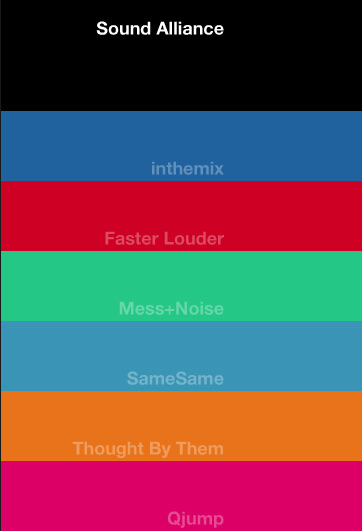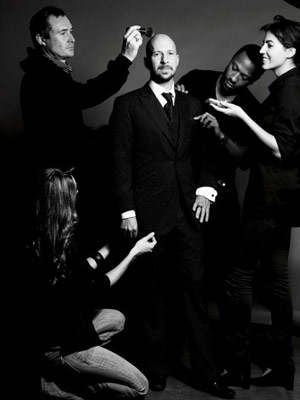 It’s June 23, 2009. Minutes away from meeting Neil Strauss, I catch myself being self-conscious. I realise that when I sit, my jeans reveal my red-and-white striped socks above my white basketball shoes, which were hastily pulled on before a flight from Brisbane to Sydney earlier that day. Shit. What will Neil think?
It’s June 23, 2009. Minutes away from meeting Neil Strauss, I catch myself being self-conscious. I realise that when I sit, my jeans reveal my red-and-white striped socks above my white basketball shoes, which were hastily pulled on before a flight from Brisbane to Sydney earlier that day. Shit. What will Neil think?
I can see him in the opposite corner of the Sofitel Hotel’s lobby, closing an interview with another young, starry-eyed guy, and chatting with his publicist. I change sitting positions a couple times to try and find the optimum spot that’ll make me look relaxed and in control. I want to exhibit both of these traits before Strauss, one of my favourite writers, because I want this to be perfect.
As I walk toward them, the publicist turns and says, “you must be Andrew”. We shake hands, and Neil offers his. “Hey Andrew, what’s up man?” he asks warmly. They’re finalising his plans for tonight; an opportunity to watch a taping of The Chaser’s War On Everything seems to be on the cards. Neil turns to the otherwise empty lobby antechamber and asks me to pick a comfortable seat for our interview. I select a window seat, and run my eyes across the page of questions written in my notebook.
I don’t admit that I was self-consciously readying myself just moments earlier. I don’t describe to him the trepidation I feel as a fan almost half his age, speaking to my favourite writer. The one who wholly shared his personal demons and sexual exploits in the 2005 book The Game: Penetrating The Secret Society Of Pick-Up Artists; an autobiographical account of the two years that Strauss spent investigating the lives of men devoted to improving themselves by attracting women.
As I ponder, Neil bounds over and sneaks a look at the page.
Neil: Ready for all fifteen questions!
Andrew: I think fifteen’s a good number. Or is it too many, or too few?
Here’s what I do. I write out like a hundred questions, even though I rarely get to ask them all. I write them out, while researching and studying them beforehand, and then just have a conversation. And if the conversation stalls, I turn to a prepared question.
But that’s just the way I do it. I don’t know if it’s the best way; no-one ever told me!
So I really enjoyed Emergency [his 2009 book on survivalist preparedness]. What did you set out to achieve with the book?
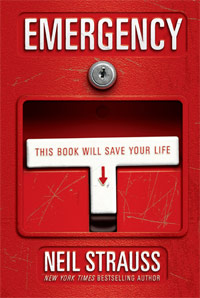 The main thing was to write an interesting, hopefully somewhat humourous story. But what I set out to achieve is always different to what I achieve. I originally set out to write a book that would influence the (2008) American election, so that a Bush-like type of person didn’t win the election. So the original goal was to look at the country and ask, “Why isn’t anybody having a revolution?” That’s even almost how I pitched it. And they let me do the book like that in the first place – “okay, go do your fun little pet project, and then give us a real book” – and then it just turned into this whole other thing about self-sufficiency and learning to be independent of the system.
The main thing was to write an interesting, hopefully somewhat humourous story. But what I set out to achieve is always different to what I achieve. I originally set out to write a book that would influence the (2008) American election, so that a Bush-like type of person didn’t win the election. So the original goal was to look at the country and ask, “Why isn’t anybody having a revolution?” That’s even almost how I pitched it. And they let me do the book like that in the first place – “okay, go do your fun little pet project, and then give us a real book” – and then it just turned into this whole other thing about self-sufficiency and learning to be independent of the system.
Did you come across that accidently?
My favourite composer is John Cage, and his credo is “be open to whatever comes next”, and I think that’s it. You start with one idea in mind, but you have to be willing to go further. Like when I did the Marilyn Manson article for Rolling Stone, I planned to tear him apart, because I didn’t like him. And when I met him, I liked him, and it turned out to be a positive article. The first book I wrote was with him, and if I hadn’t challenged my preconception, maybe I wouldn’t have started my career writing books.
So the original thing was to activate and politicise apathetic Americans, but then I realised that the whole idea of voting for a person is a pretty pathetic way of empowerment. One person isn’t really doing that fucking much. It’s like that lyric – “meet the old boss; same as the new boss” [The Who‘s ‘Won’t Get Fooled Again‘], you know. And even though there are major differences, I realised that it’s more about one’s own self, and not entrusting your safety to someone else. To become self-sufficient, and not depend on the system so much. The way you leave home when you’re a child, and eventually have to leave your parents and become an adult, in the same way you have to eventually step outside the normal political system.
Was one of your goals to encourage others to become self-sufficient, as opposed to living a life of convenience, which you describe at the beginning of the book?
Yeah. It’s also to wake up from some of the delusions you were taught as a child, from the history books and in class. And to do whatever it takes to give yourself peace of mind. The other thing is to – rather than having these anxieties and fears – take them to the extreme and get rid of them. In that way, one of my aims for the book was basically generational Prozac (laughs).
The economy’s falling apart around you; people are freaking out over these pandemics; terrorism alerts are always in a shade of orange or red.. so, you know, learning what this stuff is and what it means, and how to protect yourself. That was my Prozac for this generation’s panic attack.
How soon did you finish the book before it was published? There’s some stuff near the end that’s pretty recent.
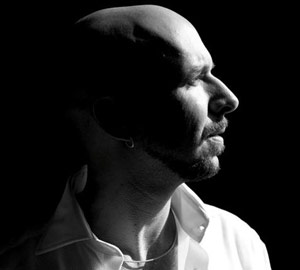 I literally finished it in February, and it came out in March. That’s the cool thing about publishing, and why I love writing versus movies or TV, because you can literally get it from your pen to the reader so soon. And I’m lucky enough that my publisher’s pretty cool, and they can turn it around (quickly). I think if it came out now, it’d be a slightly different time.
I literally finished it in February, and it came out in March. That’s the cool thing about publishing, and why I love writing versus movies or TV, because you can literally get it from your pen to the reader so soon. And I’m lucky enough that my publisher’s pretty cool, and they can turn it around (quickly). I think if it came out now, it’d be a slightly different time.
I’m really interested with what you’re doing with your publishing company, Igniter.
Thanks for asking about that! I’m fucking stoked that you asked me about that.
How did that idea come about with [fellow Rolling Stone writer] Anthony Bozza?
We were on Tommy Lee’s tour bus. He’d just written the Tommy Lee book, and I’d written the Mötley Crüe book [The Dirt: Confessions Of The World’s Most Notorious Rock Band]. And we started talking, and exchanging notes, and found that the same people had been approaching us about books. We both got approached by Slash to do a book, and Axl Rose. Over the course of that night, three different people approached both of us about writing their books. And we were like, “fuck, this is weird!” Every now and then, there’d be a good one that we didn’t have time to do.
So when someone came to us with a good book that they wanted written, we’d pass them onto agents and publishers and it’d never get made. It couldn’t get through the (publishers’) doors. So we just thought “fuck it, let’s put these books out ourselves.”
Why do you think that they couldn’t get published? What was stopping these projects – the idea of working with unknown, unpublished authors?
Yeah, unknown authors, and that most people don’t trust their taste. The phenomenon of social proof – no one thinks something is good, unless other people tell them it’s good beforehand.
I was going to ask you about social proof, because you’re now, what, a six times New York Times bestselling author? That’s a pretty massive social proof there.
Yeah, exactly.
So with you and Anthony behind Igniter, do you think that your names will hold sway in the publishing community?
That’s our hope, that we can get people to read good books. And also, we don’t want to deal with agents. If an agent has a book, he’s already shopping it to every publisher. We want to go find raw talent. I’ll give you an example: in our first book, which is out this fall…
Is that the book on the mafia guy?
No, the first one is on Bozo The Clown.
Ah, I know you’re a big fan of his.
Exactly. So you’re on my mailing list, I take it, since you knew about the mobster book?
Yeah.
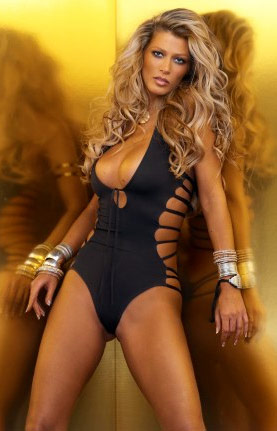 When I did the writing contest, for the mobster book, there were three guys who got through to the final. The mobster chose a different guy to the winner of the public vote, who was Ian Kelk. He’s an unemployed computer programmer. So Ian didn’t get to do the mobster book, but I said to him “listen, I’m going to find writing work for you.” And so a few weeks ago, Amber Smith [pictured left], who’s this gorgeous supermodel – she’s been on the cover of Vogue, Playboy, FHM, and also now has a reality show – she wanted to do a book. Her story is insane: she’s a supermodel, but she’s only been in two relationships for like three months each, and afterwards she stalked the guys for like ten years. It’s awesome – she’s one of the most beautiful women in the world, yet she stalks guys and they run away from her! (laughs)
When I did the writing contest, for the mobster book, there were three guys who got through to the final. The mobster chose a different guy to the winner of the public vote, who was Ian Kelk. He’s an unemployed computer programmer. So Ian didn’t get to do the mobster book, but I said to him “listen, I’m going to find writing work for you.” And so a few weeks ago, Amber Smith [pictured left], who’s this gorgeous supermodel – she’s been on the cover of Vogue, Playboy, FHM, and also now has a reality show – she wanted to do a book. Her story is insane: she’s a supermodel, but she’s only been in two relationships for like three months each, and afterwards she stalked the guys for like ten years. It’s awesome – she’s one of the most beautiful women in the world, yet she stalks guys and they run away from her! (laughs)
So I called up Ian, and said “why don’t you phone her, see if you guys get along, then come down and work on her book.” So this guy who applied for my writing contest – an unemployed computer programmer – is now hanging out with, and writing a book for a supermodel. That’s the kind of stuff that we like making happen.
So Igniter’s goal is to get unknown writers published?
It’s just to get good books published. It could be a known or an unknown writer, it just has to be good. But I’m more excited about someone, maybe, who.. like when I wrote for the New York Times, there were certain bands that I was one of the first to write about, like Elliott Smith, or Built To Spill, or Ryan Adams. There were artists I’d find and write about, and then the world would embrace that person, and I could be like “cool, I hope I helped in some way”.
That’s the kind of feeling (of talent discovery) that we’re looking to replicate with Igniter.
It’s interesting how certain writers can hold that kind of control, or influence, over popular culture.
In my case, The New York Times was a good platform because it reaches a billion people. And they’ll let you do.. do you know who Robert Randolph is?
No.
In other words, I could say to my editors, “man, there’s this guy who performs pedal steel music in churches, it’s an old church tradition, and people just fucking dance on the rafters and it gets crazy.” I did a story on him, and now he’s huge. He plays at Bonnaroo and all those kinds of festivals. And they put it on the front page of the Arts section, so it was cool to have a platform like that for people be able to listen to.
As well artists you liked, were you pressured by the Times to write about artists that you didn’t like?
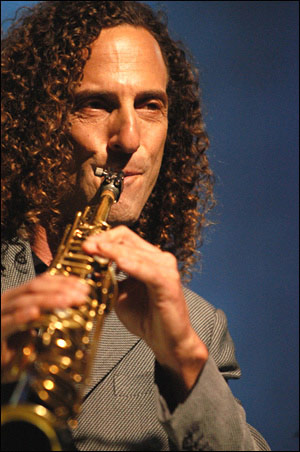 All the time, but I could choose how I wrote about them. For example, I had to write about [the saxophonist] Kenny G [pictured right]. I thought, “well, I could write the normal fucking shit about Kenny G – he’s too easy to make fun of”. But then I found out that he was a pilot. So I thought, “why don’t I have Kenny G pick me up in a plane, then we’ll go fly somewhere, then have dinner together, and we’ll talk.”
All the time, but I could choose how I wrote about them. For example, I had to write about [the saxophonist] Kenny G [pictured right]. I thought, “well, I could write the normal fucking shit about Kenny G – he’s too easy to make fun of”. But then I found out that he was a pilot. So I thought, “why don’t I have Kenny G pick me up in a plane, then we’ll go fly somewhere, then have dinner together, and we’ll talk.”
So I did that and I realised that I’d developed a respect for Kenny G, because he’s a guy who plays what he feels. And what he feels just happens to be very simple, and sweet. He’s just a simple, sweet guy playing simple sweet music, and he’s playing what he feels. He’s not like, you know, [jazz musician] Sun Ra. I have respect for Kenny G’s integrity, and I’m glad that I met him, because it would have been too easy to make fun of him.
You seem to have preconceptions of artists and people before you meet them. Have you tried to stop having those preconceptions?
I think it’s okay to have preconceptions, but you have to be willing to discard them in the face of the truth. I only think they’re bad when you stick to them, regardless; that’s just dogmatic thinking. It’s impossible to learn if you don’t listen.
What preconceptions do you think that people have of you, based on your experiences in The Game?
Generally when I walk into an interview, they definitely expect to see some arrogant fuck. You know, some arrogant, shallow fuck. And that’s fine, because people who think that generally haven’t read the book. They think it’s some lad’s manual, and that there’s a guy out there acting like that guy from Magnolia, screaming “respect the cock!” at guys. It’s fine for people to have preconceptions about me, because I usually am not like the preconception, and they’re thrown off.
I lent The Game to a bunch of my friends, and the ones who read it loved it. But the ones who didn’t pick it up had that preconception of it being a guide for guys to get laid. They find something morally wrong in the idea of a book teaching something that should be inherently known.
It’s the weirdest book, because the people who’ve read it know what it is, but those who haven’t don’t get it. I think the book is like that – you expect it to be one thing, but it turns out as something else. Like how it begins with the greatest pickup artist in the world about to kill himself. And while reading, you think “okay, maybe this isn’t going to be like what I had in mind”. And I think with all my books, I try to give the audience what they wouldn’t expect. Like with the Jenna Jameson book [How to Make Love Like a Porn Star: A Cautionary Tale], you know it’s going to deal with sex and porn, so I started it off somewhere really dark.
When did you realise that you had a book on your hands with Emergency?
It was originally just going to be a story about getting the St Kitts passport, and that was it. The original pitch was just ‘escaping America’ (laughs). And then I went to Tom Brown’s Tracker School, and I called my editor and said “listen man, I need like, another year!” I realised that I had so much to learn; I had to learn how to be human all over again. And he was cool enough to be okay with it. I still remember that cell phone call to my editor from Tracker School.
I guess that’s before you dropped your Blackberry in the water?
Exactly! (laughs)
You mentioned your parents throughout the book, and that they’d always lived a ‘life of convenience’ in the city. Have their views changed since they read the book?
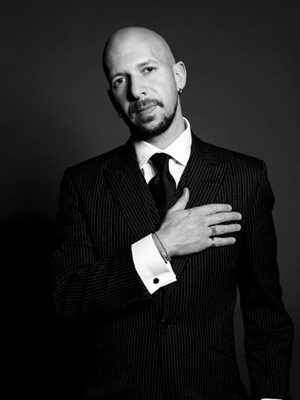 It’s funny, because I went to visit them, and I was doing a radio interview from the back of their car, and the interviewer asked what my parents feel about the book. I was like, “I don’t know, ask them!”. And they said, on air, that they wished they got the St Kitts passport with me, now.
It’s funny, because I went to visit them, and I was doing a radio interview from the back of their car, and the interviewer asked what my parents feel about the book. I was like, “I don’t know, ask them!”. And they said, on air, that they wished they got the St Kitts passport with me, now.
It’s funny, that always happens with everything I do. When I’m doing it, all my friends and family make fun of me, but once it’s done, they’re like “oh, I should have done that”. Whether it’s The Game, and learning to be more attractive to women, or Emergency, and the need to be safe and self-sufficient.
What do your parents think of your evolution as a writer, from starting with places like Ear and Village Voice, to writing New York Times bestsellers?
Man, you want to know something hilarious? My next book’s probably going to be an anthology of articles I’ve written for Rolling Stone and stuff, and my parents just sent me a book proposal letter I wrote when I was eleven years old. It’s the fucking funniest thing!
In it, I’m like: “Dear publisher, this is my book. Please send a printed copy, and all money to..”, and I gave my address. And the grammar is really good, it’s just weird to read that I was sending out book proposals at age eleven.
What was the book proposal?
It was a series of fictional mystery novels. “The Smith Mysteries“.
Did you end up writing them?
I wrote the first book, and I think my parents attached it to the letter they sent. I can’t wait to read it again, it’ll be fucking weird.
Dude, eleven?!
Yeah, I know. But my parents were always against me becoming a writer; they actually cut me off when I was writing for Ear Magazine and stuff. I had to support myself, because they really wanted me to study business, and do what they felt was safe. Ironic how business is the least safe thing to do right now! It’s much safer to be writing.
But eventually, once I was at The New York Times.. they were always a little hard [on me], but I think it drove me to excel more. Like when the Marilyn Manson book [The Long Hard Road Out Of Hell] reached the New York Times Bestseller list, they told me, “well, it’s awesome that you’ve been on the list for one week, but it doesn’t really count unless it’s for two weeks”.
Damn, they’ve got high standards!
Yeah, and that’s why in Rules Of The Game, the book is dedicated to “Your parents. You may be upset with them for what’s wrong with you, but don’t forget to give them credit for what’s right”. So I can’t really blame them for shit, because I feel that I’m happy with stuff I’ve done, and I feel that they gave me everything I needed to succeed.
How do you feel that the experiences in The Game and Emergency have shaped how you view yourself?
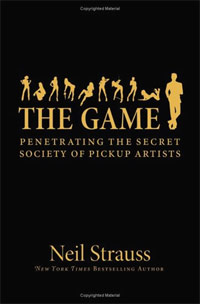 They’re completely different. With The Game – even separate from the book – I always think about how if I’d never come across this underground group of guys, I always would have lived my life in the dark, and died never having emerged from my little shell. Like, there are good things and bad things about The Game, and I thought I’d neither attack nor defend it, but when I do interviews, I will defend guys’ right to learn it. The right that guys should be able to learn those skills if they want to. Because I think “fuck, if I’d never learned it, I would have just lived my life with blinders on”, not knowing who I could be, or the experiences I could have.
They’re completely different. With The Game – even separate from the book – I always think about how if I’d never come across this underground group of guys, I always would have lived my life in the dark, and died never having emerged from my little shell. Like, there are good things and bad things about The Game, and I thought I’d neither attack nor defend it, but when I do interviews, I will defend guys’ right to learn it. The right that guys should be able to learn those skills if they want to. Because I think “fuck, if I’d never learned it, I would have just lived my life with blinders on”, not knowing who I could be, or the experiences I could have.
Even if the book never came out, I’m so grateful for those experiences. It’s just weird, I was just a completely different person [beforehand], and I just wasn’t me. I was just so intimidated, and shy about everything.
But after going through your experiences and sharing them, you’ve allowed how many thousand people to improve themselves?
Yeah, it’s pretty fucking weird. Because I didn’t know that the book would have that effect, and I think if I was trying for that effect, I probably wouldn’t have had it, because I would have tried too hard.
You share a lot of yourself and your experiences through your writing. Did that come easily, or did you hesitate?
No, I had to do it. When I did those books with celebrities, I had a rule, which is you have to tell the whole truth; you can’t hold anything back. You’d have to be willing to make yourself look bad, if that’s how it happened. I hold myself to the same standards I held those other people to. I couldn’t be hypocritical about it.
With The Game, many times I considered doing it under another name. My alias was ‘Chris Powles’. I used ‘Style’ online, but if I needed to use my real name, most of the time I was ‘Chris’. I thought I’d write the book under that person’s name, and pretend it was another book I had ghost written for somebody else, like what I’ve done using my real name in the past. I thought many times about not doing it, and then I thought, “If you’re not willing to put your name on what you did, then why did you do it?”
You mentioned at the start of Emergency that when you were researching those crazy groups around the year 2000 that you were a bad reporter because you got nervous talking with people. That’s not still the case, is it?
I still feel like a horrible reporter. My last two interviews were with Jay Leno and [comedy film director] Judd Apatow for Rolling Stone. I still feel like, “Oh shit, I didn’t ask the hard questions.” I still leave every interview feeling like I didn’t get all the stuff.
If I do an article for Rolling Stone, I feel like it’s got to be the best article and that I’ve got to get the most out of the person. I always just leave feeling I should have asked them harder questions, or been tougher, or I don’t know what. But then I listen to the interview afterward, and I actually end up getting good stuff, so I don’t know.
Even after your hundred questions, you still feel like your hundred and first would have been the best.
Yeah, exactly, like I missed something or I didn’t explore something with them or didn’t dig in deep enough or didn’t have enough rapport with them, or whatever.
How do you prepare for an interview?
I just make myself an expert on them. I brainwash myself. If it’s music or movies, I listen to every album, watch every movie, read every interview, and write down every possible question I could ever think of. So I brainwash myself with their lives. (laughs)
How does that compare to being interviewed? Do you prepare for things like this?
Talking about a book is different than writing it, so before each book comes out I’ll think about how would I describe this thing I went through and summarize it. Sometimes, I come to realizations I didn’t have in the book. People ask me about The Game and Emergency. I don’t friggin’ know. I just wrote this book and that book. If I think about them, it’s “Well, both books are really about fear.” The Game is about fear of approaching women, getting rejected, social humiliation, let’s say. Emergency is about fear of dying. Both are about ways to conquer your fear through knowledge and experience.
So you’ve been a journalist, biographer, and an autobiographer. Which do you prefer?
I think I just like writing, whatever it is. I love storytelling; anything that is storytelling, I love.
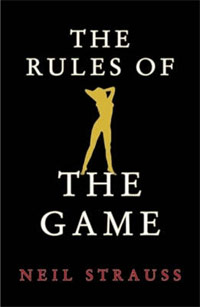
You’re pretty good at storytelling. Your writing style in The Game is so good. It’s one of my favorite books, just because of how you wrote it. The Style Diaries, at the end of Rules Of The Game, some of those stories are really different to the style of The Game, as well.
I’m curious; how do you feel they’re different? You’re probably right, whatever you’re going to say.
The Style Diaries were more personal, more focused in each vignette, and in how those stories fit into the whole picture of ‘the game’. The one where you were climbing up the back of your apartment building; that one was pretty crazy.
I think it’s funny; I like the writing in The Style Diaries better. I think The Game is a better book. I think I like the writing in The Style Diaries better because it’s like you said; it’s more focused and on the subject. That some of my favorite stuff that I’ve written, all those little vignettes. Also, it was just exploring the idea of relationships, which doesn’t get to be explored in The Game.
One of the main arguments against the concept of pick-up artists that you raised in The Game was “what do you do after the orgasm?”.
Exactly.
So in The Style Diaries, you explored that a little bit.
Exactly. I think I also want to expand on that writing. I’ve had some even crazier experiences than what I described in The Style Diaries; insane shit. I was thinking of just putting it all out as a little secret book. I might do that. (laughs)
I read in another interview that you were a bit of a workaholic when you first started writing.
Yeah.
But I’ve seen you tweet about procrastinating by watching YouTube and stuff. How do you deal with procrastination or maintaining productivity, when you’re on deadline?
The best thing for procrastination is a hard deadline looming over your head, like your editor is saying, “If this doesn’t come in now…”
[American actor and 30 Seconds To Mars singer/guitarist] Jared Leto [pictured below right] told me that he had a thirteen day deadline for the band’s next album. If it wasn’t done, they were going to fine him $2 million. That’s a good way to not procrastinate, to have a hard deadline with consequences. I find that’s the only way to get shit done.
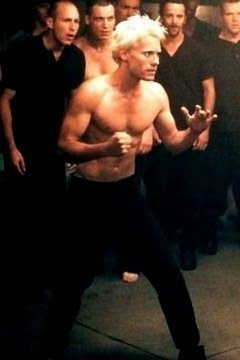 I’m a workaholic but I’m also a lazy workaholic. I fucking work really hard, but at the same time, if I don’t have to work I can be at the beach.
I’m a workaholic but I’m also a lazy workaholic. I fucking work really hard, but at the same time, if I don’t have to work I can be at the beach.
It’s hard; I was much the same with university, and now with writing assignments. It all comes together right near the end; for better or worse, and I often think it’s for worse. You think you could do it better if you plan the whole way along, rather than cramming it all in.
Exactly. What I’ll do is wait until the night before it’s due and fucking really transcribe it and then, “Fuck, I gotta…” But something I noticed when I started working at the New York Times, when I had a weekly column: it went from ‘finish your work the night before’ to writing it on the due day. Sometimes I find I do my best stuff under pressure.
Do you have any interview transcribing tips?
Yeah – outsource it. (laughs)
For real. Even if I couldn’t afford it.. I just have to have someone else transcribe it. Sometimes it’s good to listen to because then you relive the conversation, but sometimes I find it easier if if I can fucking find someone I could pay a little bit to do it. Even when I didn’t have the money, I was like, fuck – it just makes my life easier.
Do you have any advice for people who want to start becoming contributing writers to Rolling Stone or New York Times; those big-name publications?
I think they need to be willing to write wherever, for no compensation. I never applied for Rolling Stone; I never applied for The New York Times. They just saw my writing in little shitty magazines and were like, “Why don’t you write for us?”
I think you could be the greatest writer in the world, but unless someone can see your writing, no one is going to know. Just get your stuff seen. I would take every opportunity. I did a weekly column in the paper called the New York Press. I got paid $75 a column but it would take me all week to research and write it.
It was a free weekly paper, and because of that, everyone in New York would read it on the subway, and that’s how it came to the attention of The New York Times. When the job opened up at The Times, someone recommended that I apply for it. I didn’t even apply for it. I thought, “I’m not good enough; I just write for this little paper,” and then one day they called me and said, “We like your stuff.”
I think you should not be precious about shit. My advice would be that paragraph in The Game, about not waiting for opportunities to come to you, but meeting them halfway and putting in the work.
Have you read the book Outliers, by Malcolm Gladwell [pictured below left]?
Yeah.
 I think that 10,000 hours concept is pretty interesting [where Gladwell suggests that expertise is built after spending approximately 10,000 hours working toward a skill or pursuit]. The first stuff I wrote fucking sucks, you know? (laughs)
I think that 10,000 hours concept is pretty interesting [where Gladwell suggests that expertise is built after spending approximately 10,000 hours working toward a skill or pursuit]. The first stuff I wrote fucking sucks, you know? (laughs)
If I look at the first articles I wrote for Ear Magazine, you’d never know I could be a decent writer.
I guess you’ve got to start somewhere. How did you get the start with Ear, did you apply for that?
Yeah, it was an internship. I was in my college dorm room and a guy had gone to New York and applied for an internship at this magazine. He was rejected because he was too well-dressed. I thought, “That sounds perfect for me!” and I just wanted to be in New York. I didn’t really think about writing. I got the internship. It’s good to have an internship somewhere small, because after a while they’ll let you write for them and take on other responsibilities.
I’ve read that you kind of fell into writing; you didn’t set out to be a writer.
Now I don’t know. Now my parents sent me that thing from when I was eleven years old. Maybe, I don’t know; it’s confusing. I feel as a kid you want to do everything. You want to be a writer, you want to be an astronaut, you want to be a farmer, and you want to be a movie star.
I take it that your journalistic urges haven’t been quelled, because you’re still contributing to Rolling Stone.
Absolutely.
Do you read newspapers?
I still read The New York Times, not just because I work for them, but I do feel like that’s the closest you get to the full story.
How do you feel about newspaper readerships declining?
It’s fucking weird, especially the idea that a lot of these papers folded and going online. I just feel like online is a place for information, not writing. You don’t necessarily go online to read good writing. I still like the printed word.
That’s one of the theories behind the decline though, that people are becoming less attached to good writing, and strong reporting. They want instant facts, which is what the web is for.
You know what I think is interesting though? I think Twitter and all that are making people better writers. Twitter is what I had to do my whole life, where you need to get a certain word count. On Twitter, everyone is becoming their own editors. “How can I express this idea in..” How many characters is it?
140.
“How can I express this idea in 140 characters?” You have to slim it down, change your words, cut out things, so it’s making everybody an editor of themselves. I think that’s the closest that the mass population has come to being writers. Do you know what I mean? It’s pretty cool.
You started a book club with Emergency after it came out. How did that go? I knew you were trying to organize some teleconferences or something, to get everyone together.
It went so well that I had another book club that I killed and made this one my main book club, because I got really good people on it. We read Emergency, and then we finished that. I thought, “I like this group; let’s do another book,” so we read a book called The Rise And Fall Of The Great Powers, which I mentioned in Emergency. We all read that and it went great, but I think we’re going to do one more book and then I’ll close it down. It’s kind of fun and it motivates me to finish reading some books too. It worked out pretty awesomely.
What are your reading interests? I assume you read widely in music and culture.
I mostly read fiction, almost 90%, because I feel it’s good writing and I want to be influenced by stylists. I also think you learn more about life from fiction than nonfiction because people feel with nonfiction, “This is useful,” but to me fiction is metaphors for real life and the brain works better through metaphor. I feel like I learn more through fiction. I love it.
Can you recommend any good fiction books that have come out recently, or even historically, old things?
Some of my favorites are Ask The Dust, by John Fante. It’s a story about a struggling writer in Los Angeles; it was written maybe seventy years ago, but it could’ve been written now and it’s fucking hilarious, especially as a writer. You would love it. He has a picture of his editor on his wall that he worships and it’s a total AFC story too. He has a crush on a waitress, and he totally blows it with her. There’s a horrible movie adaptation, but the book is great.
The Painted Bird by Jerzy Kosinski is a brutal book about a kid wandering through the villages during World War II, in Poland. I like Life Is Elsewhere by Milan Kundera, which is about life choices; doing what you’re born to do, versus doing what society and family pressures you to do. I like Mishima Haruki Murakami, Gabriel García Márquez; Jim Carroll’s The Basketball Diaries is awesome.
I don’t know; I really love fiction, which is ironic because what I do is so different from what I love.
That’s really surprising to me.
It’s weird to me, too, because my goal is always to be.. there’s this bookstore called St. Marks, in New York. Behind the desk, they have a counter of their most stolen books. There’s [Charles] Bukowski, and William S. Burroughs, and my goal was to be on that list of their most stolen books. One day I saw The Game there and I was like, “Yes!”
I went to another bookstore once and they said their most stolen books were the Bible and The Game. I don’t know if that means people thought The Game was the Bible and stole it, and I also thought it was kind of fucked up; how could you live with yourself if you stole the Bible? The book’s about ethics, yet people still steal it. It’s so weird.
When you’re writing, actually sitting down, and writing a book, do you shut yourself away from the world?
Yeah, for sure. I have to. It involves an intense amount of focus; a lot of it is organisation, and how you organize 500 type-written pages. How do you organise that? It’s like there is a string unspooling in your head and you need to focus to make it snap taut, if that makes sense.
There’s a little place I go to on the beach in southern California, a little shack on the water where I go and get focused.
Not St. Kitts?
 Yeah, I go to St. Kitts [pictured right] a lot to write, too.
Yeah, I go to St. Kitts [pictured right] a lot to write, too.
What ever happened to Spencer [the character from Emergency]? Do you still see him?
Yeah, I just saw him in St. Kitts. He bought a couple of Segways for his house and so we were riding those around. Now he has all his money out of U.S. dollars. He has a lot of money in Australian dollars. He wanted currencies that were backed by something stable. I think the Australian dollar is on the gold standard?
Gold standard?
I think it’s backed by gold, versus the U.S. currency which isn’t backed. Canadian currency is kind of backed – he studied it and he felt he wanted a currency backed by something solid, versus a free floating currency, if that makes any sense.
I’m still friends with Spencer, and the same with the guys in all the books; Mystery and Spencer and the Manson guys. Everybody I’ve written with and about.
I never watched [the VH1 reality TV series] The Pick-up Artist. How did that fare, ratings-wise? Did that get a good response?
I think it did really well. It did well enough for a second season. They represent it pretty well. There’s a lot of empathy for the guys trying to learn it. As far as reality goes, I thought it was portrayed in the best possible light,as far as the TV medium goes.
I watched the videos that you did for Rules of the Game.
Those are my favorites! (laughs)
I like David Faustino in those.
Yeah, he’s fucking hilarious, isn’t he? He’s so fucking funny. I really think he’s a comic genius. Those are really eye-opening. To me, the video where he goes blindfolded – no, with his hands tied behind his back, and gagged, and has to meet women and get phone numbers. He has a hat on and no one can recognise him. The fact that he got four out of five phone numbers, while fucking gagged and blindfolded; it kind of means most of this stuff guys are worried about are just their own limiting beliefs.
Yeah. You mentioned your next book project earlier – I didn’t catch the name.
It’s just an anthology of stuff I’ve written for The New York Times and Rolling Stone. I’m probably going to do something to make it more interesting, like weave together funny, early writing days stories.
Like maybe your first book proposal?
Exactly, the book first book proposal, and I got cut off by my parents when I was trying to write, and dealing with all that stuff.
Stylelife [Neil’s “online academy for attraction”] is still going on, while you’re doing your book tours abroad. Who takes care of that?
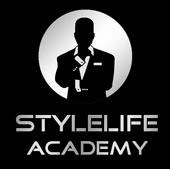 I really like the Stylelife guys. I don’t know if you know the guys, but they’re really sweet. Gypsy, Bolshevik, Bravo.. they do a really good job running it and they’re good-hearted guys. They do it. I feel bad because I haven’t been around enough; I’ve been traveling too much.
I really like the Stylelife guys. I don’t know if you know the guys, but they’re really sweet. Gypsy, Bolshevik, Bravo.. they do a really good job running it and they’re good-hearted guys. They do it. I feel bad because I haven’t been around enough; I’ve been traveling too much.
They just put together an anthology of our newsletters. I couldn’t believe that it sold out really fucking quickly.
The other good thing is the teleconferences we did with most of the guys in The Game. We did a seminar, and those guys are all pretty good. I know I spent most of the time talking but when I saw The Sneak do his thing, I was like, “Fuck!” I like those guys. It’s fun; I’m proud of them.
Well, I’m out of questions. How did I do?
You did awesome. I was just thinking as we were talking. The TV interviewers, they generally haven’t read the book and they just want some entertaining shit about “five tips for our viewers”. This is more fun for me because you know – I can talk about Igniter, and talk about the stuff that I’m passionate about right now. It was great. I enjoyed it. I thought you definitely cover your stuff pretty well.
Cool. I’m still pretty new to this.
I knew when I saw you that it’d be a cool interview. Plus you just had a regular conversation, which is better than just going one-by-one through the questions. I thought it was interesting. I like these interviews the most, because it’s someone who knows the work versus somebody who is like, “Here’s the world’s greatest pick-up artist; let’s get some tips and say “this wouldn’t work on me!”
To back up their bias.
Exactly.
I knew when I saw that interview list, I knew you and the guy I talked to before, I knew you guys would be good.
Who was the last guy?
I think he writes for a student newspaper, at the university of whatever it is. I knew you guys would be guys who follow this shit.
Cool.
Are you going to stick around for the book signing thing on Wednesday?
No, I’m flying back in about two hours.
Are you serious man? You just came down today to hit and run?
Yeah.
Did you fund it yourself?
Yeah.
That’s cool man, thank you.
Thanks for having me, man.
That’s really cool. I did the same thing. With Emergency, I spent more money on the book than I made from the book. I’ll do whatever it takes for the stories, even when I was a kid; I flew to Europe to cover a festival when I was a sophomore in college, just because I would do anything for a story. That’s awesome.
What are your interests? What do you want to do?
Writing, but I kind of want to pursue your style of writing, like the interviews written in feature style; the kind of thing that you do for Rolling Stone. I’m not sure if I have a book in me, yet.
Even though I did that book proposal [as a kid], I never thought seriously about writing a book. Even when I did the Marilyn Manson book, I wasn’t ready to write my own book yet. It just happened. You know when it’s right.
I think that ten thousand hours thing is true, too. You pay your dues writing for websites and writing for magazines, and then when you get that opportunity for your book, your reflexes are there.
I’m writing for four publications at the moment.
That’s awesome.
The bylines are gradually getting bigger and bigger, and they’re paying more and more.
That’s cool. That’s exactly what I did. Are you out of school?
Yeah, I just finished last week. I studied Communication, which is half journalism, half media studies. It was a lame course, man.
They’re all lame.
It was a waste of my three years. Well, no; I was at college two years, like residential college on campus, and that was great, making friends and stuff. In terms of the educational content…
It doesn’t matter what you major in. Unless you’re going pre-med or pre-law. Just because I majored in psychology doesn’t mean anything; I learned so much more about psychology from living and writing The Game.
I think it’s important just to get real life experiences. I think because I took those internships in college, instead of writing in college, I learned more from the people I was around – like from that kid in the dorm room who said he didn’t do that internship – than I did from any economics class I took.
So you write mostly for websites?
Half websites, half print.
Cool man, what kind of print?
Street press, which is a free newspaper you pick up off sidewalk, like music newspapers.
Cool, it’s like me with the New York Press! (laughs)
As well as a weekly publication for the music industry , which is really aimed at the major labels [The Music Network]. I’ve been writing a column about digital music and the changes that are happening in the industry.
That’s cool.
I have to be careful with what I say, though, because they’re so major label-centric and I can’t really be attacking their methods, or how they’re still tied to the old way of thinking when distributing music and stuff.
It’s so weird; I remember I worked for The New York Times when I first heard about ‘the World Wide Web’, but I never knew what it was. I heard The Rolling Stones were doing a promotional thing where they were doing something on the World Wide Web, broadcasting a concert. I didn’t know what it was. I just knew what the internet was. I didn’t know what the World Wide Web was. To me, the internet was all the news groups you had.
I remember someone said, “It’s the backbone of the internet,” and I still had no fucking idea what the World Wide Web was. Everything was dialup. Then I remember writing about the first music download, which was the quality of an AM radio in a bad car, and it took like two hours to download. Then I remember going to these conferences every three years, and someone saying that one day it will be “all you can eat”.
I think that’s the future; it’s the all you can eat services. Like the subscription model with [online music service] Rhapsody. I have [the multi-room music system] Sonos. Do you know what that is?
Yeah.
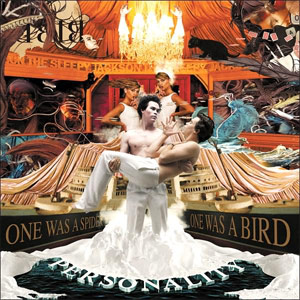 It’s fucking life-changing. It’s changed my entire musical life. When I come home, the first thing I do is “Where’s Sonos?” It’s like a pet. I pick it up and I’m like, “Okay, shit, I went out and I talked to that guy on the street and he told me about a fucking Sleepy Jackson album [pictured right]” or whatever, so I put it in and I hear it right away. It’s fucking great. Then someone comes over, like some club girl, and she wants to hear Lil Wayne, and I’m like, “Okay cool, here’s Lil Wayne.” If you’re talking on the phone and someone recommends a song, you can hear it right away.
It’s fucking life-changing. It’s changed my entire musical life. When I come home, the first thing I do is “Where’s Sonos?” It’s like a pet. I pick it up and I’m like, “Okay, shit, I went out and I talked to that guy on the street and he told me about a fucking Sleepy Jackson album [pictured right]” or whatever, so I put it in and I hear it right away. It’s fucking great. Then someone comes over, like some club girl, and she wants to hear Lil Wayne, and I’m like, “Okay cool, here’s Lil Wayne.” If you’re talking on the phone and someone recommends a song, you can hear it right away.
I got it for my parents for one of their birthdays. They love it. I think it’s game-changing, even though it’s just hooked up to Rhapsody. The whole idea that it’s your home stereo component and it’s all you can eat.. I love it, and it’s also the price of one CD a month. Napster is now like $5 a month. It’s fucking insane. 80% of what you’re going to want to hear is going to be on that.
That’s the challenge for new artists though, because there is so much music out there. How do you get heard? How do you differentiate your product from everything else that’s going around?
I think it’s always true that gatekeepers emerge. In other words, the internet happened, and there was so much shit out there; then search engines come up as the portals. I think gatekeepers always impose themselves. I keep a running list of everything that people recommend to go ahead and listen to.
I have a physical recommendation for you.
Oh, cool.
It’s a Brisbane electronic artist. He does pop songs with an electronic edge. [Yeah, I pimped Hunz to Neil Strauss.]
Cool, like The Notwist and The Postal Service kind of stuff?
He’s influenced by Radiohead and Boards Of Canada.
I love both of those. This sounds great. Is there anything else I should listen to?
There’s a band called The Middle East. They’re indie folk from North Queensland, way up north. They’re really unique and powerful.
Cool, I’ll see if I can get that. What kind of music are they?
Indie folk.
Cool. It’s kind of old, but have you heard the Yeasayer record? It’s about a year old, but it’s awesome. It takes a couple of listens to get into it, but I’ve been listening to that a lot lately. There’s also a group called Margot & the Nuclear So and So’s, do you know them?
I’ve heard of them.
It’s about a year old, but I like that too. Then there is a band I liked, called The Felice Brothers. Their first album was amazing; their next album wasn’t as good.
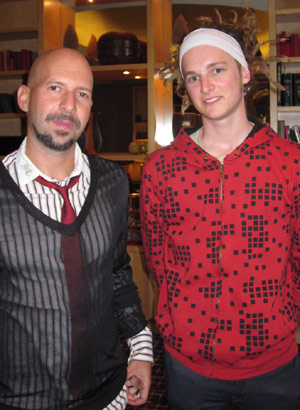
Do you still find that face-to-face recommendations are your strongest musical markers?
Definitely. When I was in Australia last with Mystery, I bought a bunch of CDs and did an article on the top ten favorite Australian CDs back then. It’s cool to see that sometimes they end up getting to the States. I think that was maybe five years ago. I think it was when The Sleepy Jackson and Architecture In Helsinki were first getting popular. I always take recommendations because even if one in twenty is good, it’s worth it.
Shit man, I can’t believe you just came down for the day. That’s crazy.
Totally worth it. I really appreciate it.
Cool man. It was cool meeting.
Can I be cheesy and ask for a photo?
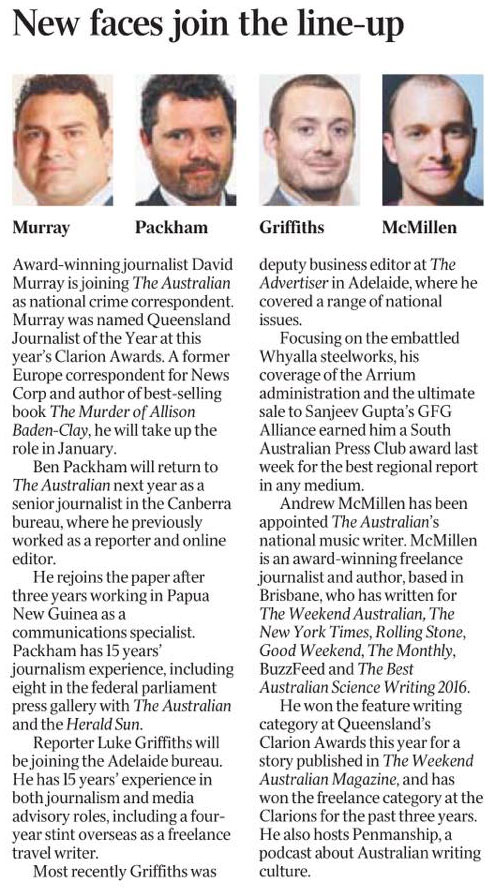
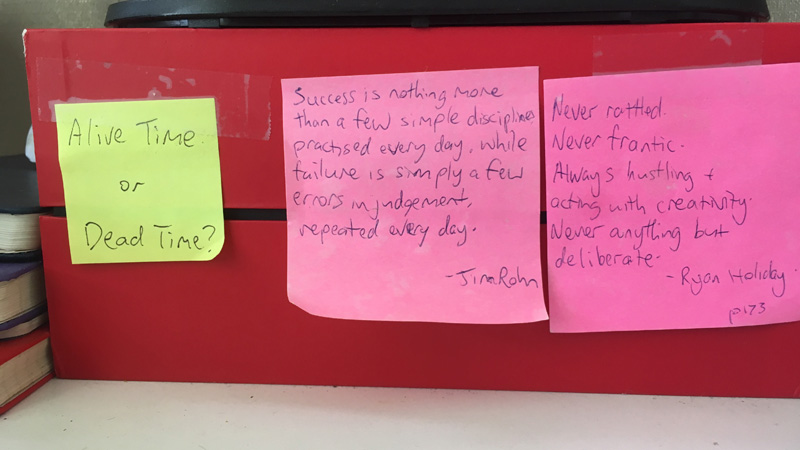
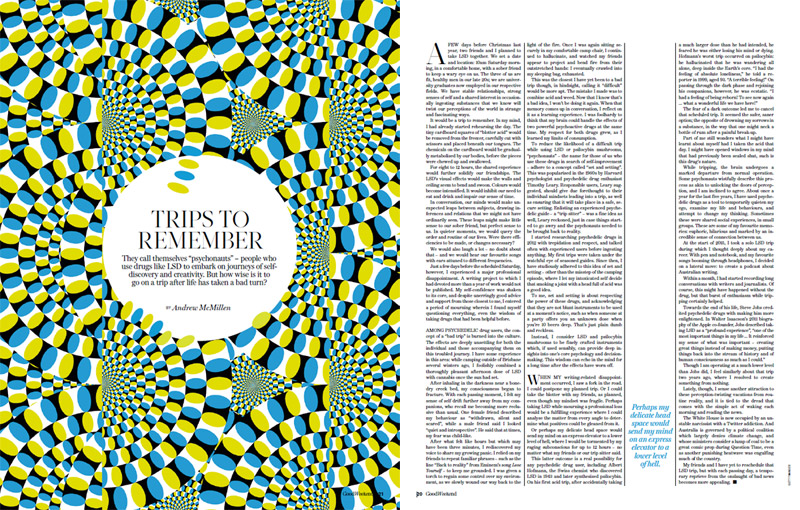
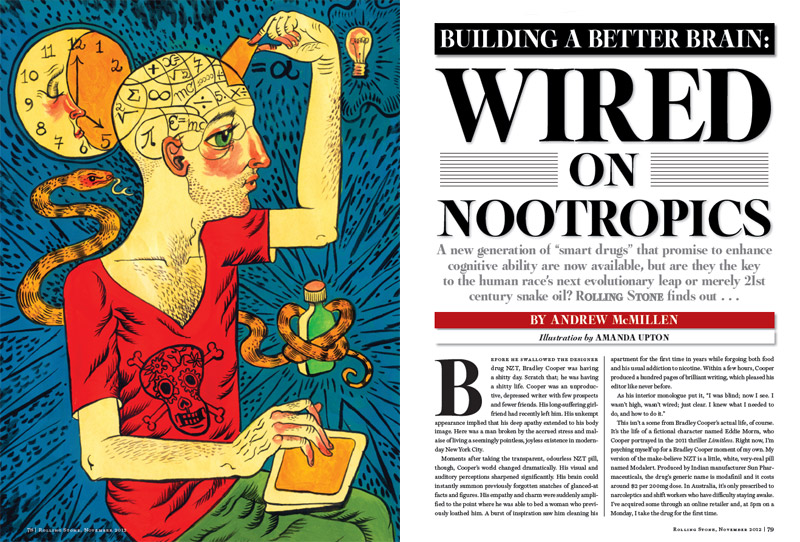
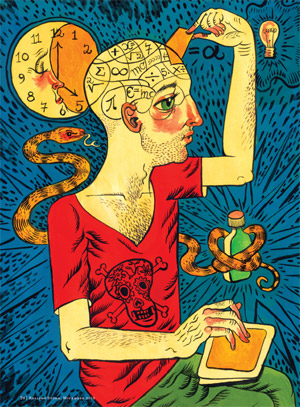
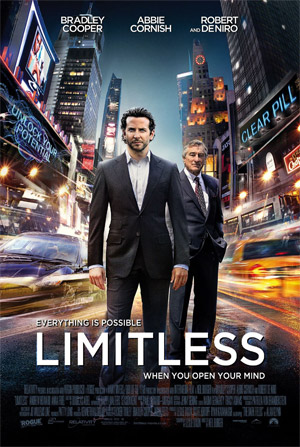 “The original idea of NZT – called MDT-48 in my book – came from the idea of human perfectibility, of ‘the three wishes’, of the chance to re-invent yourself, of the shortcut to health and happiness,” Glynn tells me. “This is why the diet and self-help industries are so huge. Hold out a promise like that and people will respond. The fact that most of these products and therapies don’t work, or are bogus, doesn’t seem to matter. The real magic here, the real dark art, is marketing. I think that if nootropics ever go mainstream, they’ll be fodder for the marketing industry.”
“The original idea of NZT – called MDT-48 in my book – came from the idea of human perfectibility, of ‘the three wishes’, of the chance to re-invent yourself, of the shortcut to health and happiness,” Glynn tells me. “This is why the diet and self-help industries are so huge. Hold out a promise like that and people will respond. The fact that most of these products and therapies don’t work, or are bogus, doesn’t seem to matter. The real magic here, the real dark art, is marketing. I think that if nootropics ever go mainstream, they’ll be fodder for the marketing industry.” It’s June 23, 2009. Minutes away from meeting
It’s June 23, 2009. Minutes away from meeting  The main thing was to write an interesting, hopefully somewhat humourous story. But what I set out to achieve is always different to what I achieve. I originally set out to write a book that would influence the (2008) American election, so that a Bush-like type of person didn’t win the election. So the original goal was to look at the country and ask, “Why isn’t anybody having a revolution?” That’s even almost how I pitched it. And they let me do the book like that in the first place – “okay, go do your fun little pet project, and then give us a real book” – and then it just turned into this whole other thing about self-sufficiency and learning to be independent of the system.
The main thing was to write an interesting, hopefully somewhat humourous story. But what I set out to achieve is always different to what I achieve. I originally set out to write a book that would influence the (2008) American election, so that a Bush-like type of person didn’t win the election. So the original goal was to look at the country and ask, “Why isn’t anybody having a revolution?” That’s even almost how I pitched it. And they let me do the book like that in the first place – “okay, go do your fun little pet project, and then give us a real book” – and then it just turned into this whole other thing about self-sufficiency and learning to be independent of the system. I literally finished it in February, and it came out in March. That’s the cool thing about publishing, and why I love writing versus movies or TV, because you can literally get it from your pen to the reader so soon. And I’m lucky enough that my publisher’s pretty cool, and they can turn it around (quickly). I think if it came out now, it’d be a slightly different time.
I literally finished it in February, and it came out in March. That’s the cool thing about publishing, and why I love writing versus movies or TV, because you can literally get it from your pen to the reader so soon. And I’m lucky enough that my publisher’s pretty cool, and they can turn it around (quickly). I think if it came out now, it’d be a slightly different time. When I did the writing contest, for the mobster book, there were three guys who got through to the final. The mobster chose a different guy to the winner of the public vote, who was Ian Kelk. He’s an unemployed computer programmer. So Ian didn’t get to do the mobster book, but I said to him “listen, I’m going to find writing work for you.” And so a few weeks ago,
When I did the writing contest, for the mobster book, there were three guys who got through to the final. The mobster chose a different guy to the winner of the public vote, who was Ian Kelk. He’s an unemployed computer programmer. So Ian didn’t get to do the mobster book, but I said to him “listen, I’m going to find writing work for you.” And so a few weeks ago,  All the time, but I could choose how I wrote about them. For example, I had to write about [the saxophonist]
All the time, but I could choose how I wrote about them. For example, I had to write about [the saxophonist]  It’s funny, because I went to visit them, and I was doing a radio interview from the back of their car, and the interviewer asked what my parents feel about the book. I was like, “I don’t know, ask them!”. And they said, on air, that they wished they got the St Kitts passport with me, now.
It’s funny, because I went to visit them, and I was doing a radio interview from the back of their car, and the interviewer asked what my parents feel about the book. I was like, “I don’t know, ask them!”. And they said, on air, that they wished they got the St Kitts passport with me, now. They’re completely different. With The Game – even separate from the book – I always think about how if I’d never come across this underground group of guys, I always would have lived my life in the dark, and died never having emerged from my little shell. Like, there are good things and bad things about The Game, and I thought I’d neither attack nor defend it, but when I do interviews, I will defend guys’ right to learn it. The right that guys should be able to learn those skills if they want to. Because I think “fuck, if I’d never learned it, I would have just lived my life with blinders on”, not knowing who I could be, or the experiences I could have.
They’re completely different. With The Game – even separate from the book – I always think about how if I’d never come across this underground group of guys, I always would have lived my life in the dark, and died never having emerged from my little shell. Like, there are good things and bad things about The Game, and I thought I’d neither attack nor defend it, but when I do interviews, I will defend guys’ right to learn it. The right that guys should be able to learn those skills if they want to. Because I think “fuck, if I’d never learned it, I would have just lived my life with blinders on”, not knowing who I could be, or the experiences I could have.
 I’m a workaholic but I’m also a lazy workaholic. I fucking work really hard, but at the same time, if I don’t have to work I can be at the beach.
I’m a workaholic but I’m also a lazy workaholic. I fucking work really hard, but at the same time, if I don’t have to work I can be at the beach. I think that 10,000 hours concept is pretty interesting [where Gladwell suggests that expertise is built after spending approximately 10,000 hours working toward a skill or pursuit]. The first stuff I wrote fucking sucks, you know? (laughs)
I think that 10,000 hours concept is pretty interesting [where Gladwell suggests that expertise is built after spending approximately 10,000 hours working toward a skill or pursuit]. The first stuff I wrote fucking sucks, you know? (laughs) Yeah, I go to St. Kitts [pictured right] a lot to write, too.
Yeah, I go to St. Kitts [pictured right] a lot to write, too. I really like the Stylelife guys. I don’t know if you know the guys, but they’re really sweet. Gypsy, Bolshevik, Bravo.. they do a really good job running it and they’re good-hearted guys. They do it. I feel bad because I haven’t been around enough; I’ve been traveling too much.
I really like the Stylelife guys. I don’t know if you know the guys, but they’re really sweet. Gypsy, Bolshevik, Bravo.. they do a really good job running it and they’re good-hearted guys. They do it. I feel bad because I haven’t been around enough; I’ve been traveling too much. It’s fucking life-changing. It’s changed my entire musical life. When I come home, the first thing I do is “Where’s Sonos?” It’s like a pet. I pick it up and I’m like, “Okay, shit, I went out and I talked to that guy on the street and he told me about a fucking
It’s fucking life-changing. It’s changed my entire musical life. When I come home, the first thing I do is “Where’s Sonos?” It’s like a pet. I pick it up and I’m like, “Okay, shit, I went out and I talked to that guy on the street and he told me about a fucking 
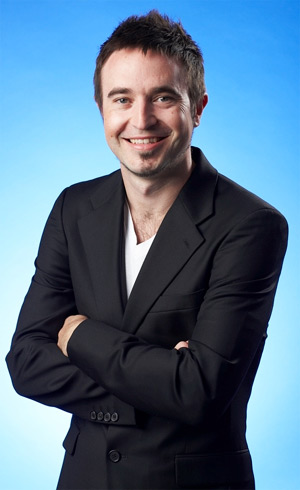 Neil: I think it depends on how you value success, really, in terms of shooting for the top. I think we’ve taken a very long-term view to a lot of the ventures that we’ve launched. I think the game we’re in is not a make-a-quick-buck game, by any stretch of the imagination. I think our intent here is of running inthemix, for example, and sites like FasterLouder, and Mess+Noise, and [gay/lesbian community]
Neil: I think it depends on how you value success, really, in terms of shooting for the top. I think we’ve taken a very long-term view to a lot of the ventures that we’ve launched. I think the game we’re in is not a make-a-quick-buck game, by any stretch of the imagination. I think our intent here is of running inthemix, for example, and sites like FasterLouder, and Mess+Noise, and [gay/lesbian community] 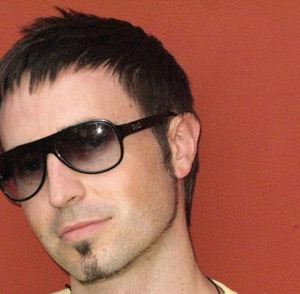
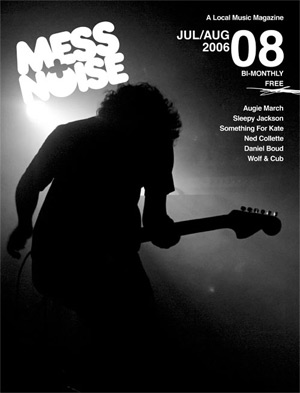 When we were initially presented with the opportunity to acquire Mess+Noise, we were really interested in the community. We really loved what they’ve been able to create and recognized how unique it was, in the sense that it really didn’t take a lot of time and a lot of different factors to create success in terms of doing a community online. Those guys have achieved that really well.
When we were initially presented with the opportunity to acquire Mess+Noise, we were really interested in the community. We really loved what they’ve been able to create and recognized how unique it was, in the sense that it really didn’t take a lot of time and a lot of different factors to create success in terms of doing a community online. Those guys have achieved that really well.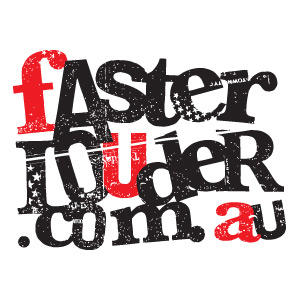
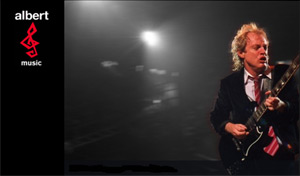
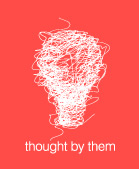 It’s a lot more people coming to us now. It used to be, in the early stages, us going out there and trying to tell people about what we’re doing. We’ve never really been out there in terms of pitching all the time, and trying to win big pitches. We have taken the approach that what we’re offering is quite a specialist thing and it doesn’t suit all brands; it only suits certain types of brands at some stage in their lifecycle. More often, they’ve kind of found us rather than us finding them.
It’s a lot more people coming to us now. It used to be, in the early stages, us going out there and trying to tell people about what we’re doing. We’ve never really been out there in terms of pitching all the time, and trying to win big pitches. We have taken the approach that what we’re offering is quite a specialist thing and it doesn’t suit all brands; it only suits certain types of brands at some stage in their lifecycle. More often, they’ve kind of found us rather than us finding them.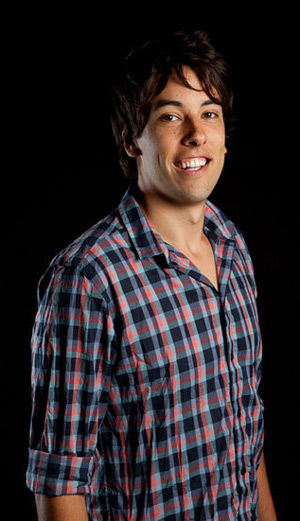 With
With 